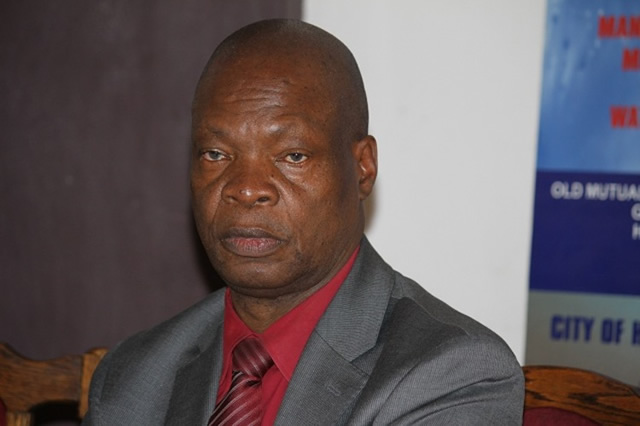Mining sector set to benefit immensely

Happiness Zengeni in CAPE TOWN, South Africa
Zimbabwe’s mining sector is expected to benefit immensely from renewed optimism and bring hundreds of millions of dollars in the coming few years on account of the new political dispensation and new economic thrust by Government, leading regional investment banking firm Akribos Capital Inc (Akribos) has said.
In an interview on the sidelines of the ongoing African Mining Indaba in Cape Town yesterday, Akribos partner Farai Vengesai, said recent marketing efforts in Davos, Switzerland, and an aggressive drive to re-engage the international community by the new administration led by President Mnangagwa, is geared towards attracting investment in capital intensive projects such as mining and power generation.
The Zimbabwean delegation is being led by Mines and Mining Development Minister Winston Chitando.
The Zimpapers team covering the event is sponsored by Seed Co.
“While a number of economic risks still exist and continue to hamper the potential for much expected growth in Zimbabwe, the key highlight is that the proposed amendments to the indigenisation laws in the country is positive for the mining sector and should attract foreign direct investments (FDI),” Mr Vengesai said.
The proposed amendments to the Indigenisation and Economic Empower laws will confine the 51 /49 indigenisation threshold to only two minerals; diamonds ands platinum, in the extractive sector.
As opposed to the entire sector Mr Vengesai said this development, coupled with the Government’s commitment to respect property rights and upholding bilateral agreements, should lower the country risk premium and thus the cost of capital. The lower cost of capital should lead to a repricing of Zimbabwean assets and hence attract the required FDI inflows in 2018 onwards.
“Developments in 2018 indicate some recovery in prices of international commodities,” said Mr Vengesayi.
Overally, we remain long-term bulls on the growth prospects in the Zimbabwean mining sector and believe that smart money should be looking for “hidden value” and adding assets to core positions.”
Akribos senior associate advisory services Batanai Matsika, said the new economic reforms will also stimulate mining production.
He said the 2018 National Budget proposed reforms that will reduce the opportunity cost of production especially in the mining sector.
“The tax relief for PGMs and gold coupled with the extension of duty-free status for the importation of capital goods is an attempt to stimulate production and generate export revenues. These new economic reforms will likely yield inflow of FDI, foreign portfolio flows and affordable lines of credit leading to increased foreign currency supply,” Mr Matsika said.
Mr Matsika, however, said the international community is closely watching Zimbabwe’s election process which remains key in the country’s turnaround.
“Credible free and fair elections are very crucial as part of the democratization process and people watch this closely globally. The world also wants to see policy consistency and clarity and the proposed changes to the indigenisation laws must become law as soon as possible, ” he said.
The country hosts more than 50 different types of minerals – 40 of which have historically been exploited in the country.
The Ministry of Finance and Economic Planning estimates that the mining sector grew by 8,5 percent in 2017. The growth was supported by modest recovery in international mineral prices for most minerals, including nickel, platinum, chrome and granite. As a result, mineral export receipts of $2,5 billion are projected for 2018, up from $2,3 billion in 2017. The mining sector is expected to grow by 7,5 percent in 2018, with most minerals anticipated to record output gains in the medium term.
This is being supported by modest recovery in international mineral prices for most minerals, including nickel, platinum, chrome and granite.










Comments